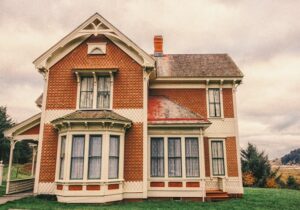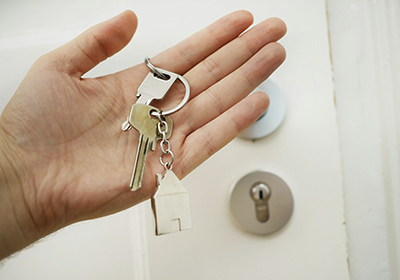Thinking about buying property in Canada? Many foreign investors, immigrants, and entrepreneurs want to buy Canadian property. Canada’s stable economy, strong real estate industry, and cultural diversity make it a top destination for foreign buyers.
However, purchasing property as a foreigner comes with specific rules, taxes, and financial considerations. In this guide, we’ll walk you through everything you need to know about home ownership—from legal requirements to hidden costs—so you can invest with confidence.
Keep reading to learn about:
Why buy property in Canada?
Foreign buyers purchase property in Canada to diversify their investment portfolio, expand their business, or gain passive income. Owning property can provide a steady rental income, mainly in metropolitan areas or popular tourist destinations.
Canada has low interest rates and access to financing, making investing in property easier, even for foreign buyers. There is no citizenship or permanent residency requirement for owning and purchasing property in Canada.
Can you buy property in Canada as a foreigner?

In 2023, the Canadian Government passed the “Prohibition on the Purchase of Residential Property by Non-Canadians Act,” which bans non-Canadian citizens from buying residential property in the country. The prohibition is valid until 1 January 2027.
The Non-Canadians Act is meant to reduce competition from foreign buyers and make residential homes more accessible for Canadian citizens.
Foreigners buying property can bypass this rule if they:
- Invest in vacation villas, cottages, recreational properties, and rural vacant land.
- Get property outside Census Agglomerations (CA) and Census Metropolitan Areas (CMA).
- Buy property in Canada for immigration or future employment in the next two years.
- Are in the country on a study or work visa and are buying property under $500,000 Canadian dollars.
- Are buying a property with a Canadian citizen, their common-law partner, or spouse.
A real estate agent can help navigate the housing market whether you want to invest in a permanent residence, business, or vacation home.
Canadian Real Estate Market Overview
Economic stability, interest rates, government policies, and demographics affect real estate market trends. The purchase price fluctuates based on the location and inflation. You must consider these factors when investing in Canadian property.
For example, city areas and popular tourist spots have high long-term rental yields. However, they come with higher upfront costs. Towns, villages, and rural areas are more affordable for single-family homes but may not be the best locations for startup businesses.
Home buyers must have sufficient funds to invest. The table below offers a general guideline of the prices you can expect based on the location in Canadian dollars.
Location | Average price per m2 (apartments) | Average price per m2 (houses) |
Toronto | $10,203 | $8,898 |
Vancouver | $12,566 | $14,263 |
Québec City | $3,767 | $3,534 |
Hamilton | $5,928 | $5,614 |
Victoria | $8,487 | $7,394 |
Types of property in Canada
In Canada, properties fall into these categories: residential, commercial, industrial, and agricultural types. This breakdown can help you draft your home buyer plan.
- Residential property: This includes any property where you can live, such as cottages, single-family homes, townhouses, condos, and other homes.
- Commercial property: This includes any business property, such as retail stores, office buildings, hotels, etc.
- Industrial property: These are places used for production and storage, such as warehouses, factories, data centers, and manufacturing plants.
- Agricultural property: These are rural investments, such as farms, ranches, and underdeveloped land.
Where to buy property in Canada?
The best places to buy a property depend on your goals — whether you’re looking for an investment, a home, or rental income.
Best cities for real estate investment
These cities have strong job markets, rising property values, and a growing population. They are an excellent option for a non-resident looking to start a business or invest in luxury estates.
- Toronto, Ontario
- Vancouver, British Columbia
- Calgary, Alberta
- Ottawa, Ontario
- Montreal, Québec
The Canada citizenship by investment program offers a path to permanent residence for entrepreneurs and high-net-worth individuals.
Best cities for affordable homes
These cities tend to have lower monthly housing costs and good amenities.
- Charlottetown, Prince Edward Island
- Regina, Saskatchewan
- Edmonton, Alberta
- Winnipeg, Manitoba
It is best to consult with a mortgage advisor if you want a primary residence.
Best cities for rental income
If you are looking to rent out property with high rent prices, then these places can help:
- Vancouver, British Columbia
- Oakville, Ontario
- Burnaby, British Columbia
- Toronto, Ontario
- Richmond Hill, Ontario
Required documents when buying property in Canada

The necessary documents to invest property include:
- Personal identification (i.e., national ID, passport, PR card, residency permit, etc.)
- Financial reports (i.e., proof of funds, mortgage pre-approval letter, credit report, etc.)
- Property purchase (i.e., deposit receipt, purchase agreement, home appraisal report, home inspection report, etc.)
- Legal and tax documents (i.e., legal fees, a title deed, property insurance, tax-free savings account, etc.)
- Additional documentation for foreign buyers and temporary residents (i.e., work permit, proof of funds, visa, residency documents, financing approval from a Canadian bank, etc.
A mortgage advisor can help you navigate the process and find the best loan options for your financial situation.
Step-by-Step Guide: How to Buy Property in Canada for Americans
Americans can buy Canadian properties and invest in real estate. These steps below are designed to ensure that the purchase and sale process aligns with Canadian laws and regulations.
Property
Search
Offer and Negotiation
Due
Diligence
Purchase Agreement
Closing
Process
Property Transfer
1. Finance your venture
If you’re planning to finance the purchase through a mortgage from a Canadian bank, you’ll need to communicate with relevant banks in Canada and open a bank account. Some American buyers may also consider paying cash for their properties.
2. Obtain a non-resident Tax Number
As non-Canadians, you’ll need to obtain a Tax Number for non-residents from the Canada Revenue Agency (CRA) to pay tax. This number is required for various tax-related transactions.
3. Tax considerations
While non-Canadian residents are subject to specific tax implications, you can optimize your tax-deductible amount. Consult with a tax professional who specializes in cross-border property transactions to understand the tax obligations in both the US and Canada.
4. Consult with a real estate agent and lawyer
Engaging a real estate agent familiar with the Canadian market is highly recommended if you want to buy a home in Canada. They can provide insights into local market trends and help you find properties that align with your preferences. Additionally, having a Canadian property lawyer review the purchase agreement and guide you through legal requirements is crucial.
5. Prepare for currency exchange
Given that the price and other costs will likely be in Canadian dollars, you’ll need to consider currency exchange rates. Fluctuations in exchange rates can impact the overall cost of your property purchase.
Property Purchase Costs in Canada
Buying property encompasses more than just the sale price for foreign investors. Potential homeowners must consider various associated costs contributing to the overall financial commitment. These include:
- Property taxes: Asset tax returns are crucial and vary depending on the province and municipality. They fund local services such as schools, infrastructure, and public amenities.
- Legal fees: Engaging a real estate lawyer ensures a smooth and legally sound transaction. A real estate lawyer’s consultation fees cover tasks like title searches, contract reviews, and ensuring all documentation is in order.
- Down payment: The Canada mortgage system differs from other countries regarding down payments. The minimum down payment in Canada is based on the purchase price of your apartment, cottage, or home. The higher the purchase price, the higher the down payment. For example, for homes that cost $500,000 or less, the down payment is 5 percent of the purchase price. For homes $1.5 million or over, the minimum down payment is 20 percent.
- Closing costs: Closing costs encompass a range of expenses, including title insurance and home inspection fees. These additional fees can add up, so it’s essential to budget for them.
- Mortgage payments: If you’re financing your purchase through a mortgage, your home loan mortgage payments will depend on factors like the mortgage rate, term, and amortization period.
Financing a Property in Canada

Your creditworthiness, income, and down payment amount will influence the housing corporation’s interest rate. Canadian mortgage rates are relatively low, making homeownership attractive for foreigners and permanent residents with good credit histories.
The housing industry offers a relatively straightforward path to buy a home in Canada and start homeownership for citizens and permanent residents. However, housing corporations and the Canadian government issue specific considerations for non-Canadians and temporary residents. Temporary residents may need to apply for approval from the Canadian government to buy property.
Property Taxes in Canada
Property tax rates often vary from 0.5 percent to 2.5 percent. In Canada, property taxes are not based on the value of your property, the purchase price, or income. Other factors, such as local tax rates and assessment values, determine them.
Official organizations regularly check the value of a home. However, how often they do this depends on the province. Some provinces organize assessments every year, while others do it less frequently. For example, organizations in Alberta assess homes annually, while in Ontario, they practice it once every four years.
When it comes to buying property in Canada as a foreigner, other taxes are worth considering. For example, Toronto, Ontario, charges a land transfer tax in addition to the provincial one. A federal service tax of 5 percent is applied to most goods and services across Canada.
Both the buyer and the seller should consult several experts before they buy property in Canada. Licensed professionals like realtors, mortgage brokers, lawyers, and home inspectors can navigate this process, underline the property taxes, and ensure everything goes smoothly.
Is it worth buying property in Canada for rent?
Rental properties are smart investments because they increase in value over time. But you need to make sure you have the funds, time, and resources to make such an investment. Property prices in Canada are high, especially in populated cities and tourist destinations.
However, properties are more affordable in small towns and rural areas. When it comes to buying property in Canada for foreigners, it is best to choose a destination that suits your financial situation.
What to Know about Buying Canadian Property
Ownership Rights: Non-Canadians have the same ownership rights as Canadian citizens. You can own the property, earn rental income, and sell property. |
Financing: Canadian banks offer mortgage financing to non-residents, but terms and conditions may differ. Prepare your financial documentation and explore your financing options with a Canadian bank. |
Property Types: Canada offers a range of property types, including single-family homes, condos, townhouses, and even recreational properties. Choose a type that suits your lifestyle and preferences. |
Finalizing Costs: Be prepared for additional costs beyond the purchase price, such as legal fees, land transfer taxes, and home inspection costs. These costs can add up, so budget accordingly. |
Local Regulations: Each province and municipality has its own regulations regarding property ownership and taxes. Research thoroughly before making a decision to ensure compliance with local laws. |
How Can Global Citizen Solutions Help You?
Global Citizen Solutions is a boutique migration consultancy firm with years of experience delivering bespoke residence and citizenship by investment solutions for international families. With offices worldwide and an experienced, hands-on team, we have helped hundreds of clients worldwide acquire citizenship, residence visas, or homes while diversifying their portfolios with robust investments.
We guide you from start to finish, taking you beyond your citizenship or residency by investment application.

Frequently Asked Questions about Buying Property in Canada
Can a foreigner purchase a house in Canada?
Foreigners living in Canada and overseas can buy property in Canada without any restrictions. It is strongly recommended to have sufficient funds and study the housing market in the country.
Can foreigners rent property in Canada?
Yes, a foreigner can rent an apartment or a house in Canada if they have the legal status to reside in the country. To get approved for long-term renting, foreigners must have a valid student permit or work visa or become permanent residents.
Can I buy property in Canada as a US citizen?
Yes, US citizens can buy real estate in Canada with the same rights as Canadian citizens. But, check the taxes and fees, since some provinces, such as Ontario and British Columbia, charge a Non-Resident Speculation Tax (NRST) on foreign buyers.
Can Americans buy property in Canada?
Americans can purchase and own land in Canada without residency status or Canadian citizenship. Foreign buyers can buy land for cottages, vacation homes, ranch properties, recreational land, etc. However, other restrictions apply. Check the “Prohibition on the Purchase of Residential Property by Non-Canadians Act” for further details.
Can foreigners buy real estate in Canada to live?
Yes, foreigners can purchase residential real estate to live in Canada. Many are buying vacation property in Canada across popular destinations such as Toronto, Vancouver, and Montreal.
Can Americans own land in Canada?
Yes, Americans can own land in Canada. However, certain rules and restrictions apply. Non-Canadian citizens can’t purchase land in Census Agglomerations or Census Metropolitan Areas. So, you can still buy land outside of these zones, such as recreational land, rural vacant land, farmland, ranch properties, and land for cottages or vacations.
How do I prepare for land transfer taxes when working with a financial institution?
When applying for a mortgage through a financial institution, account for land transfer taxes as part of your closing costs. The rate will vary based on the property you are buying and the location you choose. Canadian citizens and residents can qualify for benefits and tax incentives.
What is a Registered Retirement Savings Plan (RRSP)?
The RRSP is a retirement savings plan that allows you and your partner to put money into it. The money you contribute can reduce your taxes. Anything you earn in your RRSP, such as investment gains, is not taxed while in your account. You only pay taxes when you take the money out, usually after you retire.
Is property cheaper in Canada or the USA?
Property prices vary greatly within both countries, so it depends on the specific location. For example, in Toronto, Canada, the housing prices are higher than New York, United States. But, buying property in Canada as a US citizen can be cheaper if you choose rural areas.


